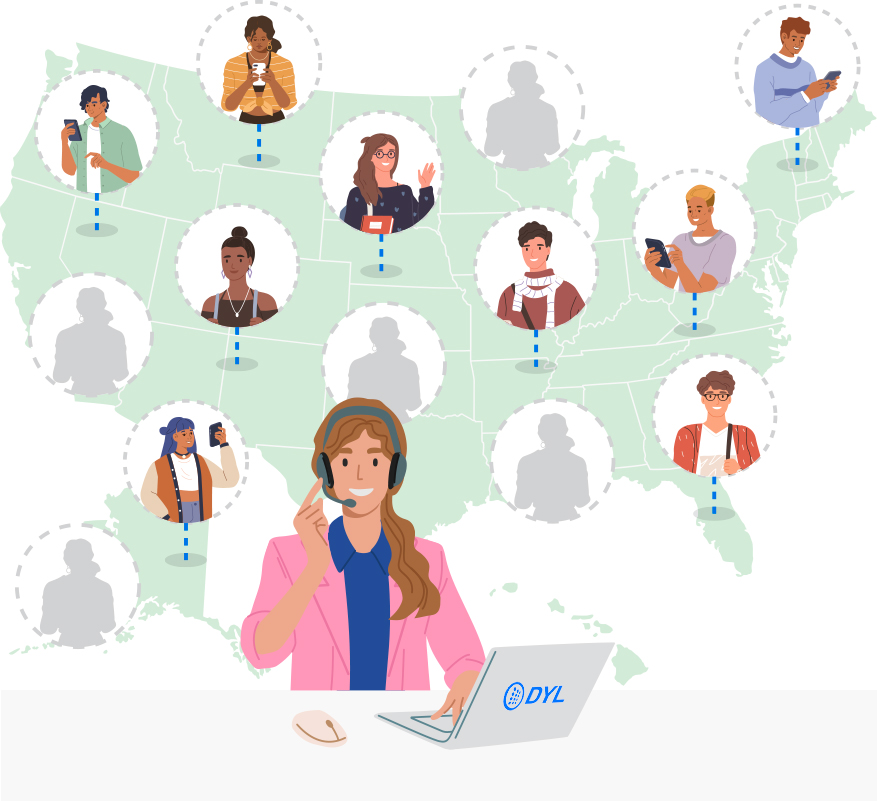How to Find a VoIP Phone Number
Are you looking for a way to trace a VoIP phone number? If so, you are not alone. VoIP phone numbers are easy to fake because they are not attached to a physical location and are available to any user within the country of the provider. Cybercriminals and scam artists use these numbers to trick unsuspecting victims.
Non-fixed VoIP phone numbers are not attached to a physical location
Non-fixed VoIP phone numbers are those that are not attached to a physical location. Fixed VoIP phone numbers are associated with a physical location and are usually attached to a physical address. While fixed VoIP phone numbers are convenient for businesses that want to build a local presence, they are not ideal for businesses with a worldwide reach.
Non-fixed VoIP phone numbers are not tied to a physical location, which means that 911 calls made with such numbers are not routed to the right dispatch center. Furthermore, since these calls can’t be traced, it’s difficult for emergency services to locate the caller. For this reason, companies should advise their employees to use their personal phone numbers for emergency situations instead of voip with phone number.
Non-fixed VoIP phone numbers are best for businesses with a nationwide presence and a diversified team. It is convenient and inexpensive, but the downside is that the costs of long-distance and international calls can be more expensive. This is especially true for businesses with customers who live in different countries. In addition to this, non-fixed VoIP phone numbers don’t require installation, which means that you can start using them immediately. You can also match the phone numbers to your customers’ location.

They are easy to spoof
VoIP phone numbers are easy to spoof, and spammers use them to spread scams. You can try blocking the number, but it’s useless as it’s not always guaranteed that you’ll stop all calls. In some cases, spammers simply change the VoIP number, so it’s best to stick to blocking traditional phone numbers instead.
VoIP fraud is on the rise because VoIP phone systems enable attackers to hide their tracks and pose as legitimate entities. In many cases, scammers use fake numbers to trick people into giving out sensitive information or revealing personal details. This is also made easier by the fact that VoIP hardware is inexpensive and widely available. Scammers can attach the VoIP hardware to their computers or smartphones and send fake calls to their victims.
Another way to prevent spoofing is by using strong antivirus and security software on your phone. A strong antivirus application and security software on iPhone and Android phones will protect your phone from malware. You can also record a voicemail message to alert spoofers.
They are available to users living in the provider’s country
VoIP phone numbers are virtual numbers, which can be used to make and receive phone calls from any device with Internet connectivity. The device also needs to have sound output capabilities. VoIP phone numbers are made up of three sets of numbers: a three-digit area code, a telephone prefix, which is essentially a smaller area code, and the final four digits.
One of the best features of VoIP phone numbers is that they are portable. You can use them from any location by simply transferring them from one provider to another. This is particularly advantageous to businesses that don’t want to lose their customers because of a change in service provider. Another benefit of VoIP phone numbers is that they don’t require any significant upfront investment. Companies can begin using VoIP with their existing equipment.
VoIP phone numbers are more affordable than conventional phone services. They allow you to make unlimited international calls for less money. Because VoIP phone numbers are generated using an IP network, users can use them on any device with Internet connectivity. You can also use them on your smartphone and analog landline instruments with converters. Because VoIP phone numbers are consistent across devices, they show up as the same number on caller ID. Additionally, VoIP phone systems can ring multiple devices simultaneously or sequentially.
They are used by scammers and cybercriminals
VoIP makes it easy for cyber criminals to create fake phone numbers. They can appear local, or have a 1-800 prefix, which makes them hard to trace. Some even make fake numbers that look like they come from government agencies, local hospitals, or the police department. Phishing schemes are often highly effective and rely on social engineering techniques to lure victims into revealing personal information. This is why companies should implement strict security policies and procedures.
Scammers use VoIP phone numbers in order to lure unsuspecting victims into making transactions. They target individuals who are easily overwhelmed by an official-sounding call from an organization. These scammers may also use these numbers in order to carry out the Vishing Attack.
VoIP technology is also an excellent way for cybercriminals to mask their identity. These savvy hackers can use VoIP equipment to connect to a PC and create fake numbers. Because these numbers are impossible to trace, they can easily perform vishing scams, posing as legitimate entities and asking for sensitive information. Furthermore, the VoIP hardware is becoming more widely available, making it easier for hackers to connect it to a computer or smartphone.